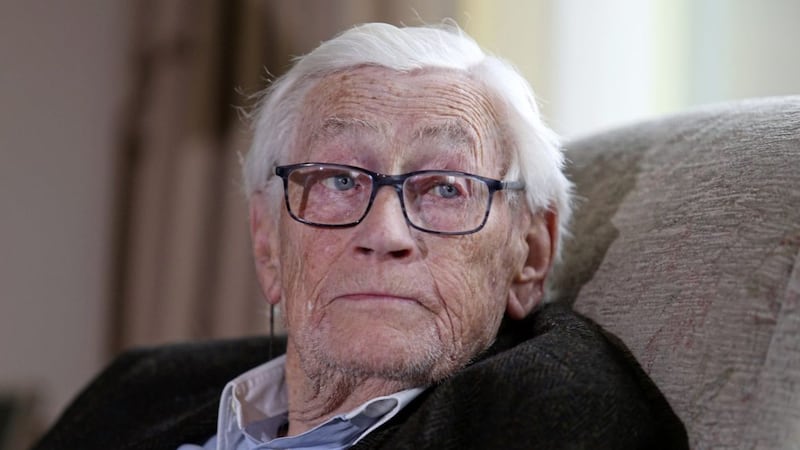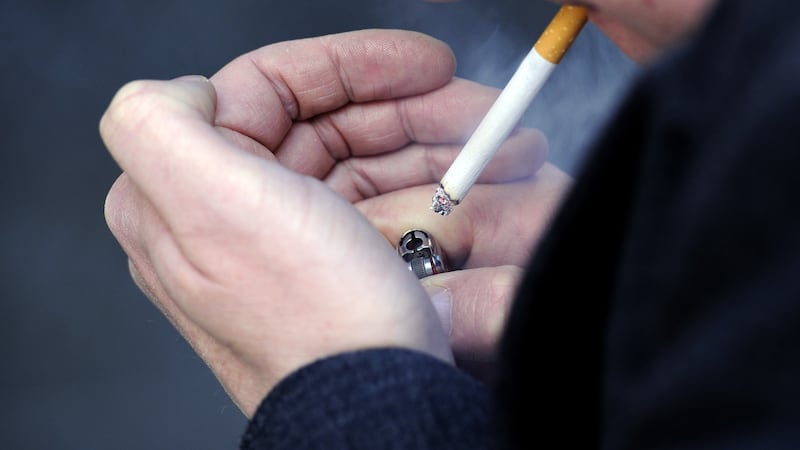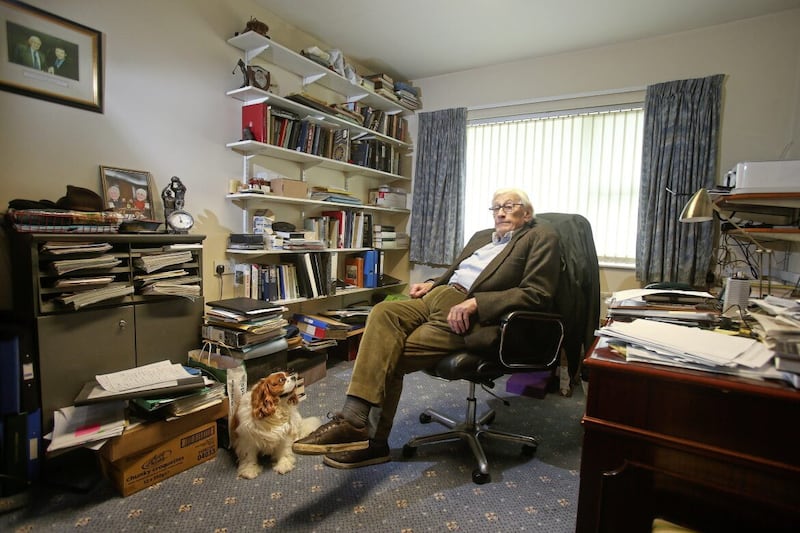A battered orange Opel Ascona pulled up. There was an air of defiance in the stride of the man who got out. I glimpsed his white hair. A half finished cigarette was discarded into the garden. He banged the door like the RUC on a raid.
No introductions necessary. It was Seamus Mallon, weathered leather overcoat, a decidedly teacher-like herringbone jacket, rugged demeanour and an outstretched hand.
It was November 1985. I don’t remember actually agreeing to work on his campaign but Seamus was a difficult man to refuse. I gave him tea in a mug which annoyed my aunt.
John Hume was the hero of civil rights but Seamus was the leader of the rearguard. When he spoke people listened.
Seamus Mallon was a force of nature. To his friends, he was Seamus. To his opponents, Mallon. Both respected him.
Respect came easily because he didn’t take it for granted. His deep voice reeked of integrity. His tenacity tempered with an instinctive empathy for people. He took no prisoners in debate and swatted fools like flies.
Yet Seamus had an unrivalled eloquence.
Patrick Kavanagh wrote: ‘A man dabbles in words and rhymes and then finds that is his life’. Like Kavanagh, Seamus dabbled in words. He was reared in the same soil that spawned Peadar O’Doirnin, Seamus Dall McCuarta and Art Mac Cumhaigh.
At SDLP conferences, those with stickability (and strong livers) would in the early hours hear Seamus give a slow considered rendition of the Bard of Armagh.
He was a swordsman with words. Seamus could verbally rapier the opposition. His speeches were spellbinding and he strode the stage with the greatest: Clinton, Mitchell and Delors.
Seamus had stature, style and substance. He once graced the field as a Gaelic footballer for Abbey CBS and Armagh. Seamus was a big man. He had to be. Ulster politics, like Ulster football, is only for senior players.
When his friend and colleague John Hume sometimes failed to fully share his direction of travel, it was often left to Seamus to credibly explain to the party and media what Hume meant. They made for a good team.
When Seamus became MP for Newry and Armagh in January 1986, the former Irish Times correspondent Conor O’Clery described his maiden speech as one of best.
He was a twenty-four hour, seven days a week politician.
Seamus was as familiar with the works of the playwright Sean O’Casey as he was with the wins of the jockey Pat Eddery.
He loved nothing better than a flutter and journalists loved nothing more than getting a tip. (Once he forecast Enda Kenny as taoiseach in 1992! - not even Enda would have taken that bet.)
In fact, Seamus was a dream for journalists - they never left a press conference without a printable quote. He coined the Good Friday Agreement as "Sunningdale for slow learners".
Seamus and David Trimble made for an odd partnership but somehow, though taut, it worked. Time and tide was against them along with a disingenuous approach from the then British and Irish governments. Seamus was particularly scathing of Tony Blair.
A younger generation won’t remember the role Seamus played in the ending of the supergrass trials, the disbandment of the UDR, exposing shoot to kill policies and the reform of policing and justice in Northern Ireland. But it was Seamus who did the heavy lifting. As a patriot he was indefatigable in condemning the unwarranted violence of the IRA.
Seamus, in plain Ulster speak, was thran but it was a likeable stubbornness. He could invoke fierce loyalty from supporters. He was a man who left more than a footprint.
He continued to surprise as his recent biography ‘A Shared Home Place’ proved. Seamus had walked behind too many coffins to know that only power sharing based on mutual respect, tolerance and diversity would truly unify Ireland.
Seamus’s real and lasting love was Gertrude, his late wife. And of course, his beloved daughter Orla and granddaughter Lara, on whom he doted. When all else is said and written, all Seamus desired was to leave what we all call home a better place.
Like the lyrics of his favourite song, four score and three years have now flitted but I can almost hear his raspy voice: ‘Oh list to the lay of a poor Irish harper, And scorn not the strings of his old withered hands, But remember those fingers, they once could move sharper, to raise up the strains of his dear native land’.







